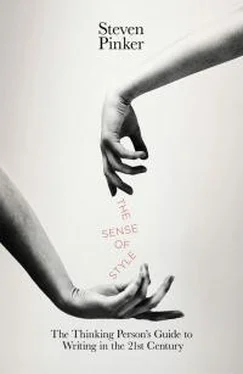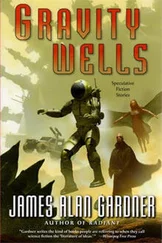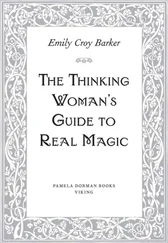head.The word in a phrase that determines the meaning and properties of the whole phrase: the man who knew too much; give a moose a muffin; afraid of his own shadow; under the boardwalk.
hypercorrection.The overextension of a poorly grasped prescriptive rule to examples in which it does not apply, as in I feel terribly; They planned a party for she and her husband; one fewer car; Whomever did this should be punished.
iambic.A weak-STRONG meter: MiCHELLE; aWAY; TO BED!
indicative.A term from traditional grammar for the moodof ordinary statements of fact, in contrast to subjunctive, imperative, interrogative, and other moods.
indirect object.The first of two consecutive objects of a verb, usually indicating a recipient or beneficiary: If you give a moose a muffin; Cry me a river.
infinitive.The plain, untensed form of the verb, sometimes (but not always) appearing with the subordinator to: I want to be alone; She helped him pack; You must go.
inflection.The modification of the form of a word according to its role in the sentence, including the declension of nouns ( duck, ducks, duck’s, ducks’ ) and the conjugation of verbs ( quack, quacks, quacked, quacking ). Not to be confused with intonationor prosody.
intonation.The melody or pitch contour of speech.
intransitive.A verb that does not allow a direct object: Martha fainted; The chipmunk darted under the car.
irrealis.Literally “not real”: a form of the verb that indicates factual remoteness. In English it is marked only on the verb be: If I were a rich man , as opposed to If I was sick, I’d have a fever. In traditional grammars, it tends to be conflated with the subjunctive.
main clause.The clause that expresses the principal assertion of a sentence, and in which subordinate clauses may be embedded: She thinks [I’m crazy]; Peter repeated the gossip [that Melissa was pregnant] to Sherry.
metadiscourse.Words that refer to the current discourse: To sum up; In this essay I will make the following seventeen points; But I digress.
meter.The rhythm of a word or set of words, consisting of a pattern of weak and strong syllables.
modal auxiliary.The auxiliaries will, would, can, could, may, might, shall, should, must, and ought. They convey necessity, possibility, obligation, future time, and other concepts related to modalities.
modality.Aspects of meaning relevant to the factual status of a proposition, including whether it is being asserted as fact, suggested as a possibility, posed as a question, or laid out as a command, a request, or an obligation. These are the meanings expressed by the grammatical system for mood.
modifier.An optional phrase that comments on or adds information to a head: a nice boy; See you in the morning; The house that everyone tiptoes past.
mood.Distinctions among the grammatical forms of a verb or clause that convey the semantic distinctions of modality,including the distinctions between an indicativestatement ( He ate ), a question ( Did he eat? ), an imperative ( Eat! ), a subjunctive( It’s important that he eat ), and, for the verb be , an irrealis( If I were you ).
morpheme.The smallest meaningful pieces into which words can be cut: walk-s; in-divis-ibil-ity; crowd-sourc-ing.
nominal.Something nouny: a noun, pronoun, proper name, or noun phrase.
nominalization.A noun formed out of a verb or an adjective: a cancellation; a fail; an enactment; protectiveness; a fatality.
noun.The grammatical category of words that refer to things, people, and other nameable or conceivable entities: lily, joist, telephone, bargain, grace, prostitute, terror, Joshua, consciousness.
noun phrase.A phrase headed by a noun: Jeff; the muskrat; the man who would be king; anything you want.
object.A complement that follows a verb or preposition, usually indicating an entity that is essential to defining the action, state, or situation: spank the monkey; prove the theorem; into the cave; before the party. Includes direct, indirect,and obliqueobjects.
oblique object.An object of a preposition: under the door.
open conditional.An if-then statement referring to an open possibility, one that the speaker does not know to be true or false: If it rains, we’ll cancel the game.
participle.A form of the verb without a tense, which generally needs to appear with an auxiliary or other verb. English has two: the past participle, used in the passive voice ( It was eaten ) and perfect tense ( He has eaten ), and the gerund-participle, used in the progressive present tense ( He is running ) and in gerunds ( Getting there is half the fun ). Most verbs have regular past-participle forms, formed by the suffix –ed ( I have stopped; It was stopped ), but about 165 have irregular forms (I have given it away; It was given to me; I have brought it; It was brought here ). All gerund-participles in English are formed with – ing.
part of speech.Traditional term for a grammatical category.
passive voice.One of the two major voicesin English. A construction in which the usual object appears as the subject, and the usual subject is an object of by or absent altogether: He was bitten by a rabbit (compare the active A rabbit bit him ) ; We got screwed; Attacked by his own supporters, he had nowhere else to turn.
past tense.A form of the verb used to indicate past time, factual remoteness,or backshift: She left yesterday; If you left tomorrow, you’d save money; She said she left. Most verbs have regular past-tense forms, formed by the suffix –ed ( I stopped ), but about 165 have irregular forms ( I gave it away; She brought it ). Also called the preterite.
person.The grammatical distinction between the speaker (first person), the addressee (second person), and those not participating in the conversation (third person). Marked only on pronouns: first person I, me, we, us, my, our; second person you, your; third person he, him, she, her, they, their, it, its .
phoneme.A minimal unit of sound, consisting of a spoken vowel or consonant: p-e-n; g-r-oa-n.
phrase.A group of words that behaves as a unit in a sentence and which typically has some coherent meaning: in the dark; the man in the gray suit; dancing in the dark; afraid of the wolf.
predicate.The grammatical functionof a verb phrase, corresponding to a state, an event, or a relationship which is asserted to be true of the subject: The boys are back in town; Tex is tall; The baby ate a slug. The term is also sometimes used to refer to the verb that heads the predicate (e.g., ate ), or, if the verb is be , the verb, noun, adjective, or preposition that heads its complement (e.g., tall ).
Читать дальше












